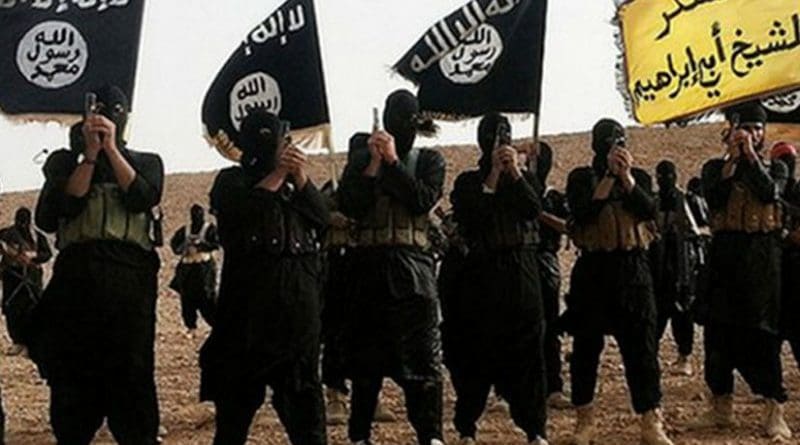ISIS Resurgence More Than Likely Due To Iran’s Proxy Militias In Iraq – OpEd
The US Secretary of State Mike Pompeo’s 12 conditions on Iran nuclear deal – that were outlined in a speech at the Heritage Foundation think tank in Washington, D.C. on May 21, 2018 – have merits; particularly his condition of “Iran must respect the sovereignty of the Iraqi Government and permit the disarming, demobilization, and reintegration of Shia militias”.
If Iranian influence on the Iraqi militias is allowed to continue, these militias would be again encouraged to marginalize and torture the Sunni Arab population, whose sufferings would then become the rallying point for the revival of ISIS or the emergence of ISIS-like new group/s.
What’s more, if Iranian influence continues to prevail on the Iraqi Shia militia groups, the Shias – who are the followers of those schools of thoughts that are different from what these militia groups follow – will also come under attack from the Iran-backed Shia militias.
ISIS rose on capitalizing the marginalization of Sunni Arabs
When the US was largely withdrawing its forces in Iraq, they left an Iraq that was sectarian and chaotic. The Sunni population – specifically of Arab ethnicity – had to face widespread tortures from the hardliner sectarian elements across Iraq.
Before the emergence of ISIS, the continuous protests by the Sunni Arabs in Iraq’s Anbar province (including in Fallujah) and the breakout of armed clashes every now and then between Sunni Arab protesters and security forces — increasingly showed frustration of the Sunni Arab population, as they were being neglected by the sectarian regime in Bagdad and were being tortured by some sectarian elements in the Iraqi army and the Iran-backed Shia militias.
After the rise of ISIS, a substantial portion of the Iraq’s Sunni Arab population – who were extremely frustrated from the tortures by the Shia militias and the sectarian Iraqi army personnel – had either directly jointed ISIS after embracing its ideology or atleast cooperated with ISIS in many issues.
Hence, the sufferings of the Sunni Arab tribes in the hands of the sectarian Iraqi regime (under the premiership of Nouri al-Maliki), the sectarian elements in army and the Iran-backed Shia militias had pushed a substantial number of the Iraqi Sunnis (of Arab ethnicity) to align themselves with ISIS.
But once the administration of Haider al-Abadi (who succeeded Nouri al-Maliki) managed to bring the Sunni Arabs on board by marginally wining their trust, the situation took an about-turn. The Sunni Arabs joined the US, the Iraqi army, the Kurds (the other Sunni ethnic population in Iraq), the Iran-backed Shia militia groups and the militias of Muqtada al-Sadr in order to fight the ISIS.
The result was obvious. The presence of ISIS in Iraq was substantially diminished.
Revival of ISIS if Iranian interference in Iraq continues
Now that ISIS’s presence has largely reduced in Iraq, the Iran-backed Shia militias might again turn their guns back on the Sunni Arab population — a scenario that will pave the way for either the revival of ISIS or the emergence of ISIS-like new group/s, who will try to capitalize on the renewed sufferings of the Sunni.
Hence, it is important to curtail Iranian interference in Iraqi politics. It is important to reduce Iranian influence on the Shia militias and to disarm them, so that they can cause no harm to not only the Sunni Arabs, but also the Shias from those schools of thoughts that are different from what these militias follow.
It, thus, appears that the US Secretary of State Mike Pompeo’s aforesaid condition of “Iran must respect the sovereignty of the Iraqi Government and permit the disarming, demobilization, and reintegration of Shia militias” is something that should be taken seriously by the governments of stakeholding countries (including Iraq), who then should put pressure on Iran to do exactly what Pompeo has asked to do in this regard.

